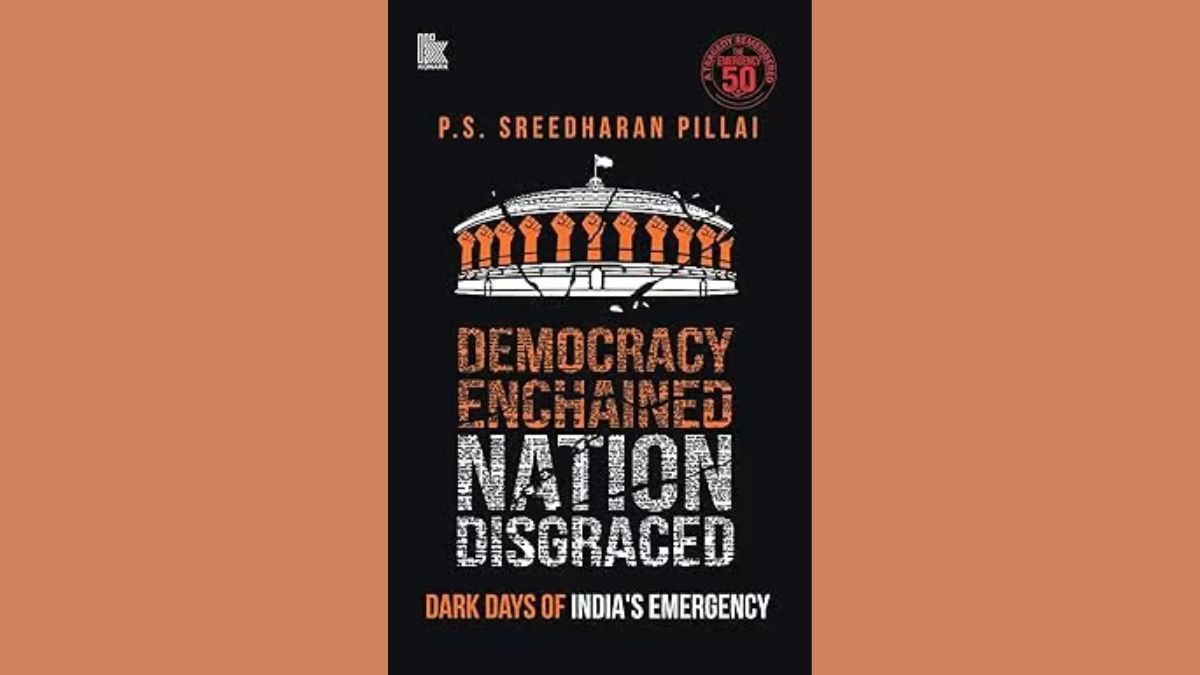Democracy Enchained, Nation Disgraced: Book on Emergency era combines historical detail with personal reflection

In his 260th book, Democracy Enchained, Nation Disgraced, senior BJP leader and Goa Governor P.S. Sreedharan Pillai offers a detailed account of one of modern India's darkest political chapter - the Emergency, whose 50th anniversary is observed this year. Combining historical detail with personal reflection, the book revisits a period marked by suspension of civil liberties, and a nation under the authoritarian rule.
Pillai laments the debate around the Emergency had existed in the margins of mainstream narratives. “Tragically, the failures and excesses of the regime that pushed the country to the brink of dictatorship remain inadequately documented in our history books. It is a national tragedy that the horrors of the Emergency have been consigned to the margins of history,” the author writes.
He notes that despite its far-reaching consequences, there has been inadequate institutional or public engagement with this period. Drawing upon his experience with organisation vigil human rights, particularly in Kerala, he underscores the importance of preserving collective memory to protect democratic values.
The book details the fateful midnight of June 25, 1975, when then Prime Minister Indira Gandhi recommended the imposition of Emergency to President Fakhruddin Ali Ahmed—an act later criticised for its lack of constitutional scrutiny. Citing former President Pranab Mukherjee’s memoirs, Pillai points out that the Emergency was declared without consulting the Cabinet, revealing the extent of centralised power under Gandhi’s leadership. The author contends that Indira Gandhi’s decision was influenced by “power-hungry sycophants the Soviet Union and the Communists.”
Pillai traces the socio-political landscape leading up to the Emergency, from the post-Bangladesh war euphoria to the rising tide of corruption, internal dissent, and student protests. According to him, the regime’s response included mass arrests under laws like MISA and the COFEPOSA Act. The figures are staggering: over 1.1 lakh people jailed and more than 26 lakh sterilised during the period—many of them under coercive state machinery. Fundamental rights were suspended, and censorship became institutionalised, particularly targeting the media and internal criticism within the ruling Congress Party.
The book highlights voices of resistance, such as Jayaprakash Narayan (JP), whose non-violent Lok Sangharsha Samiti movement posed a serious challenge to the government, and media figures like Ramnath Goenka who stood firm on press freedom. Equally, it recounts acts of silent protest by cultural icons like cartoonist Shankar, who closed his publication in symbolic dissent.
Pillai also foregrounds the role of the Rashtriya Swayamsevak Sangh (RSS), both in resisting the Emergency and supporting JP’s movement, despite being banned and subjected to harsh repression. He stresses that the RSS adopted a policy of forgiveness post-Emergency, rather than retribution. At the same time he hits out at the Left leaders who sided with Indira Gandhi barring AK Gopalan who vehemently opposed the Emergency.
A significant portion of the book is devoted to the Shah Commission, which investigated excesses during the Emergency. While the Commission did present a damning indictment of the regime, Pillai points out how its findings were ignored or buried. He alleges that Indira Gandhi’s 1980 return to power led to the destruction of the report, a suppression he describes as a grave blow to democratic accountability. He commends the efforts of parliamentarian Era Sezhiyan, who later attempted to recover and publish parts of the report.
Pillai had also included the speeches and views of senior leaders to provide a wider perspective. Though the tone of the book is personal at times, maintains a factual and legalistic approach. It seeks to document rather than dramatise, presenting the Emergency not only as a political event but as a cautionary tale about the fragility of democratic institutions.
Democracy Enchained, Nation Disgraced
By P.S. Sreedharan Pillai
Published by Konark Publisher
Price Rs 595; pages 279
Books Review